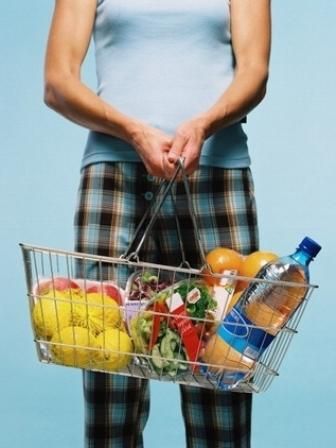
Good news for food and petrol prices in South Africa
Households in South Africa could be in for some respite in the coming months as petrol and food prices are set to cool off, according to the Bureau for Economic Research (BER).
In a note on Monday (8 August), economists at the BER noted a downward trend in global oil prices, which – if the trend persists – will lead to a sizeable fuel price cut at the end of the month.
“The one-month ahead Brent crude oil price declined by 13.7%. Recession fears have weighed on the oil price since July. Indeed, brent averaged about $105 a barrel in July, down from around $118 a barrel in June, while the average during the first week of August was just $97 a barrel,” the BER said.
“Although still early in the month, this could be good news for South African consumers who already saw a R1.32 a litre decrease in the petrol price last week.”
The latest daily fuel price snapshot from the Central Energy Fund reflects this downward trend in oil prices, showing a R2.00 to R2.50 contribution to an over-recovery in prices.
When coupled with the rand’s stronger performance in August so far – relative to its much weaker performance in July – motorists could see a petrol price cut of R2.80 in September if current market conditions persist.
On Wednesday (3 August), the domestic petrol price came down by R1.32 per litre, with diesel prices dropping slightly less by between 88 and 91 cents per litre.
The Automobile Association (AA) pointed to the potential for another price drop in September if the international oil price – one of the key drivers of high petrol prices – continues to decline.
Brent crude traded at around $95 per barrel, well off its July average.
Annabel Bishop, chief economist at Investec reiterated the AA’s view, stating that another petrol price cut of around R3.00 per litre is building for September.
She added that inflationary price pressures that affect fuel, food and energy will likely slow in the later parts of this year.
According to the BER, the easing of oil prices will also have another knock-on effect, suggesting that the country may have seen the peak of the inflationary cycle for both fuel and food.
Speaking to News24, the national head of agriculture at Nedbank, John Hudson, said that food inflation in the country has likely peaked at around 10% in July and will start easing, average at about 7% for the year.
The household food basket tracked by the Pietermaritzburg Economic Justice & Dignity group (PMBEJD) shows real-world basket prices for food are far higher than even inflation suggests, with the year-on-year average cost of a basket of 44 items increasing by 14.8% from July 2021.
The massive 14.8% hike is far above headline inflation (CPI) recorded in July at 7.4% and far outstrips reported food inflation at 8.6%.
However, even the PMBEJD’s basket carries some good news for households, with the think tank echoing what economists are seeing – a tapering off in food prices month-to-month, suggesting an end to accelerating inflation.
“Although the average Household Food Basket continues to rise, the data over the past three months is starting to show a moderation in prices,” it said.
“Indications are that global commodity prices of grains and oilseeds and crude oil, amongst others, are stabilising. This means that imported inflation is likely to be lower, and we should begin to see some of this filtering through. We are further likely to see lower fuel prices next month,” it said.
However, the group said that while we may start to see food prices stabilising, it is not clear when these prices will begin to fall.
“Further to this, any moderation of food prices will not mean that there will be more money in people’s pockets because July and August bring with them increases in taxi fares and higher electricity tariff prices. Pressures will therefore remain on households’ ability to afford their basic expenditures for the foreseeable future,” it said.
News Category
- International retailers
- On the move
- Awards and achievements
- Legislation
- Wine and liquor
- Africa
- Going green
- Supplier news
- Research tools
- Retailer trading results
- Supply chain
- Innovation and technology
- Economic factors
- Crime and security
- Store Openings
- Marketing and Promotions
- Social Responsibility
- Brand Press Office
Related Articles

Empowering South African households through gro...

SPAR shares practical tips to beat food inflation

South African motorists could be paying up to R...

Big VAT changes on the cards


